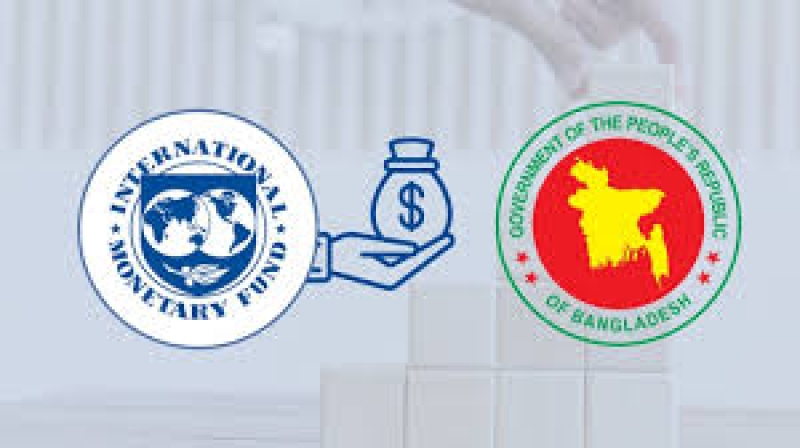- Puppet show enchants Children as Boi Mela comes alive on day 2 |
- DSCC Admin Salam’s drive to make South Dhaka a ‘clean city’ |
- 274 Taliban Dead, 55 Pakistan Troops Killed |
- Now 'open war' with Afghanistan after latest strikes |
- Dhaka's air quality fourth worst in world on Friday morning |
IMF approves $1.3b of $4.7b loan program for Bangladesh

The International Monetary Fund (IMF) has finally approved a $1.3 billion disbursement of the third and fourth tranches of Bangladesh's $4.7 billion loan program.
As a result, it is set to receive a significant boost to its foreign exchange reserves, with the IMF approving the disbursement of US$1.3 billion from its ongoing $4.7 billion loan program.
This amount, covering both the third and fourth tranches, is expected to be deposited into Bangladesh's account on June 26.
The news was confirmed by Bangladesh Bank Governor Ahsan H. Mansur on Monday night, who stated, "We are receiving $1.3 billion. It has been approved by the IMF board today."
Sources from the Finance Division of the Ministry of Finance and Bangladesh Bank indicate that the approval came during a meeting of the IMF's Executive Board at its headquarters in Washington D.C., held late Monday Bangladesh time. During the meeting, reports from the third and fourth reviews of Bangladesh's loan program were presented and subsequently approved.
The IMF initially approved the $4.7 billion loan proposal for Bangladesh on January 31, 2023, for a period of three and a half years.
At the time, the IMF stated that the loan program aimed to help Bangladesh maintain macroeconomic stability, protect vulnerable and marginalized populations, and foster inclusive and environmentally sustainable growth. The then-Awami League government had sought the loan primarily due to a widening current account deficit, depreciation of the Bangladeshi Taka, and declining foreign exchange reserves.
The release of these two tranches is expected to provide much-needed support to Bangladesh's economy, which has been grappling with external sector challenges, reports UNB.

